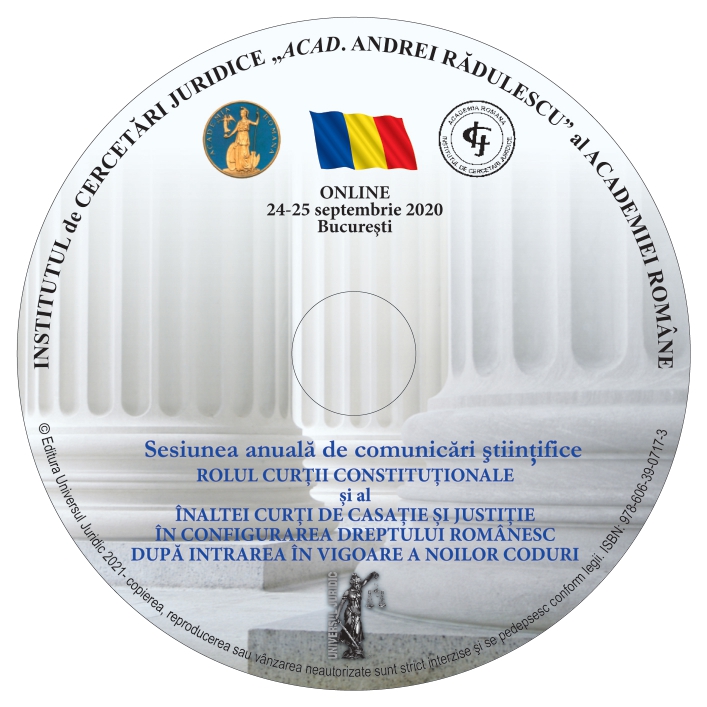Este jurisprudența Înaltei Curți de Casație și Justiție creatoare de drept ?
It is the Jurisprudence of the High Court of Cassation and Justice a Creator of Law?
Author(s): Mihai Bădescu
Subject(s): Law, Constitution, Jurisprudence, History of Law, Civil Law
Published by: Universul Juridic
Keywords: jurisprudence; source of law; Supreme Court; appeal in the interest of the law; unraveling of legal issues;
Summary/Abstract: In the legal systems that establish it as a formal source of law, the case law includes the practical experience of the judicial bodies that apply the right to concrete cases. In these legal systems, the judge can make decisions with general value, decisions that can become creative sources of law. Prior to the law as a source of law, jurisprudence did not have the same role in the legal systems, this role being different from one historical era to another, from one system to another. In contemporary law, the jurisprudence has its particularities, in relation to the legal system in which it is founded: in Roman-German law, the jurisprudence is the result of the interpretation and application of the law, carried out by the judicial body, according to the will of the legislator who adopted the legal norm; in Anglo-Saxon law, the precedent is the authority that a judicial decision can have in cases analogous to the one in which it was pronounced; In this system, the judge is not a mere interpreter of the law; he is the creator of law (judge made law). In Romanian law, which does not belong to the Anglo-Saxon system, but to the family of Romanian-German law, the jurisprudence has a special status. We consider two situations that underline the importance of the precedent in this legal system: the decisions of the Constitutional Court (which are general-binding and have power only for the future) and the decisions of the High Court of Cassation and Justice (in the case of the appeal in the interest of the law and in the situation where The High Court is called upon to give a preliminary ruling on the issue of legal issues). From the point of view of the present study, it is precisely these decisions of the Supreme Court, according to the two procedures regulated in civil procedural law and criminal procedural law. From this perspective, seeking to answer the question that gives the title of this study, we admit that, in Romanian law, the case law can be considered a secondary source of the law. The reserve attitude towards recognizing the source of the right of jurisprudence is based on the principle of separation of powers in the state: the adoption of laws is the responsibility of the legislator, their application, the responsibility of the judicial bodies. To recognize the courts the right of direct normative elaboration, would mean to force the door of legislative creation, disturbing the balance of powers (N. Popa).
- Page Range: 91-100
- Page Count: 10
- Publication Year: 2020
- Language: Romanian
- Content File-PDF

